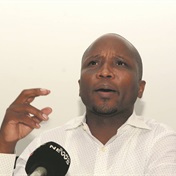
Limpopo has abandoned a ground-breaking initiative – telemedicine or telehealth – that could be useful as the world grapples with the Covid-19 coronavirus pandemic.
Many countries, such as Britain, the US and Canada, have been ramping up virtual patients’ visits and advocating the telemedicine case during this time that requires social distancing to curb the spread of the virus.
Telemedicine is the delivery of medical care at a distance, using technological platforms such as video conferencing, emails and telephones.
Limpopo launched its telemedicine project as far back as 2007, but it was abandoned.
Back then, the provincial department of health wanted to bridge the gap of the skills shortage by linking well-resourced urban hospitals with rural ones and with clinics to avoid ferrying patients long distances to consult with scarce specialists.
Telemedicine was also a service delivery milestone that would bring doctors to the people and not the other way around.
Six sites were connected to Polokwane Provincial Hospital. They were Mankweng Hospital in Turfloop, Letaba Hospital (Tzaneen), Tshilidzini Hospital (Thohoyandou), St Rita Hospital (Glen Cowie), George Masebe Hospital and Rivoni in Waterberg.
Furthermore, officials were sent to China for training, and equipment to the value of R8 million was bought to equip 10 sites.
According to insiders, health authorities rejected advice for a wireless connection between the sites and instead signed a contract with the State Information Technology Agency (Sita) for fixed-line connectivity.
“The cables were stolen, there was no budget allocated and the project collapsed,” the insider said.
Limpopo health spokesperson Neil Shikwambana said that the department’s main challenge with the telemedicine project was connectivity in rural areas.
“After a contract with Sita, the system was down most of the time due to fixed lines not working. As time went on, equipment became obsolete and upgrading was going to be more expensive, not cost-effective,” said Shikwambana.
He said that there were four pilot sites at first and 10 more were connected after other countries were visited for benchmarking.
“It is still a desired option as we still have challenges with specialists. The department started to explore the avenue in 2019 and now, more so with Covid-19, it will be beneficial,” he added.
SA Medical Research Council vice-president for research Professor Jeffrey Mphahlele said that telemedicine could be useful during health crises such as Covid-19, to escalate cases from lower-level facilities to higher ones.
“Telemedicine is certainly useful, not only in healthcare, but for training as well. The way it could be useful during Covid-19 is when you have the technology in a lower-level facility and escalate cases to a higher level without subjecting the patient to travelling. If there’s a critical case that needs immediate intervention, it would be useful to communicate with a practitioner at the next level,” Mphahlele said.
“Medical students posted in peripheral areas can also work with professors in medical schools as part of their training,” he added.
The only limitation, he said, could be when doctors consult with their patients via communication technology, but then have to write reports about, for example, temperature and blood pressure readings.
“In those reports, doctors need to say that I took the temperature or blood pressure of a patient. Doctors cannot do those things without seeing the patient,” Mphahlele said.
In Britain, the National Health Service has changed its policy to encourage 7 000 general practitioner surgeries to start conducting remote consultations with phones, videos, online and text contact.
Before, doctors had 340 million face-to-face consultations with patients and only 1% were done by video using applications such as Skype.
In the US, $500 million (R9.5 billion) of the overall $8.3 billion emergency aid budget will be used to allow medical practitioners to administer telemedicine or telehealth services so that more elderly patients, who are at greater risk of contracting the virus, can receive care at home.
The Health Professions Council of SA has updated its guidelines on the practice of telemedicine in light of Covid-19.
Mbombela-based doctor Eric Khumalo, who works at Kiaat Private Hospital, said that telemedicine could work, but concurs with Mphahlele that it had some limitations.
“You can do telemedicine with a patient known to you as a doctor, and when you feel the need to see the patient, you can do so. Some medicines cannot be prescribed telephonically, so there it cannot work,” Khumalo said. In radiology, he said, telemedicine worked really well.
“For Covid-19, it works well because patients are told not to see doctors or go to a clinic, but rather to seek advice. Covid-19 has taught us a lot of things and, maybe going into the future, telemedicine is the way to go,” said Khumalo.
 |
| ||||||||||||
| |||||||||||||




 Publications
Publications
 Partners
Partners








